Tucked away in the Colorado mountains — a welcome reprieve after the spotlight brought by the Paris Olympics — Kristen Faulkner wants to set the record straight. The narrative surrounding her gold medal in the women’s road cycling race isn’t the Cinderella story as it’s been portrayed.
Yes, it’s true Faulkner didn’t qualify for the event during trials.
Yes, it’s true she got the call weeks before the race that she would replace Taylor Knibb, the qualifier, who chose instead to focus on the women’s triathlon.
And yes, it’s true that once in the 158-kilometer race (98.17 miles), Faulkner attacked the final stretch, leaving the world’s best cyclists in her wake, as she cruised to a 58-second victory under the backdrop of the Eiffel Tower.
While painting her gold as a miracle might read well in the land of fairytales, the truth is it diminishes her journey to the top: a tale of sacrifice and courage, of dedication and resiliency, of a young Olympic hopeful who will go on to accomplish what no other American has in 40 years.
Her story begins as a young girl watching Michael Phelps cementing his legacy as the best swimmer in the world. Faulkner was a swimmer herself, and watching Phelps dominate left her wondering how great she could be. Maybe she could win her next meet. Maybe even a state tournament. Maybe one day, she would stand atop an Olympic podium with a gold medal hanging from her neck as girls around the world watched, saying, “I want to be like her.”
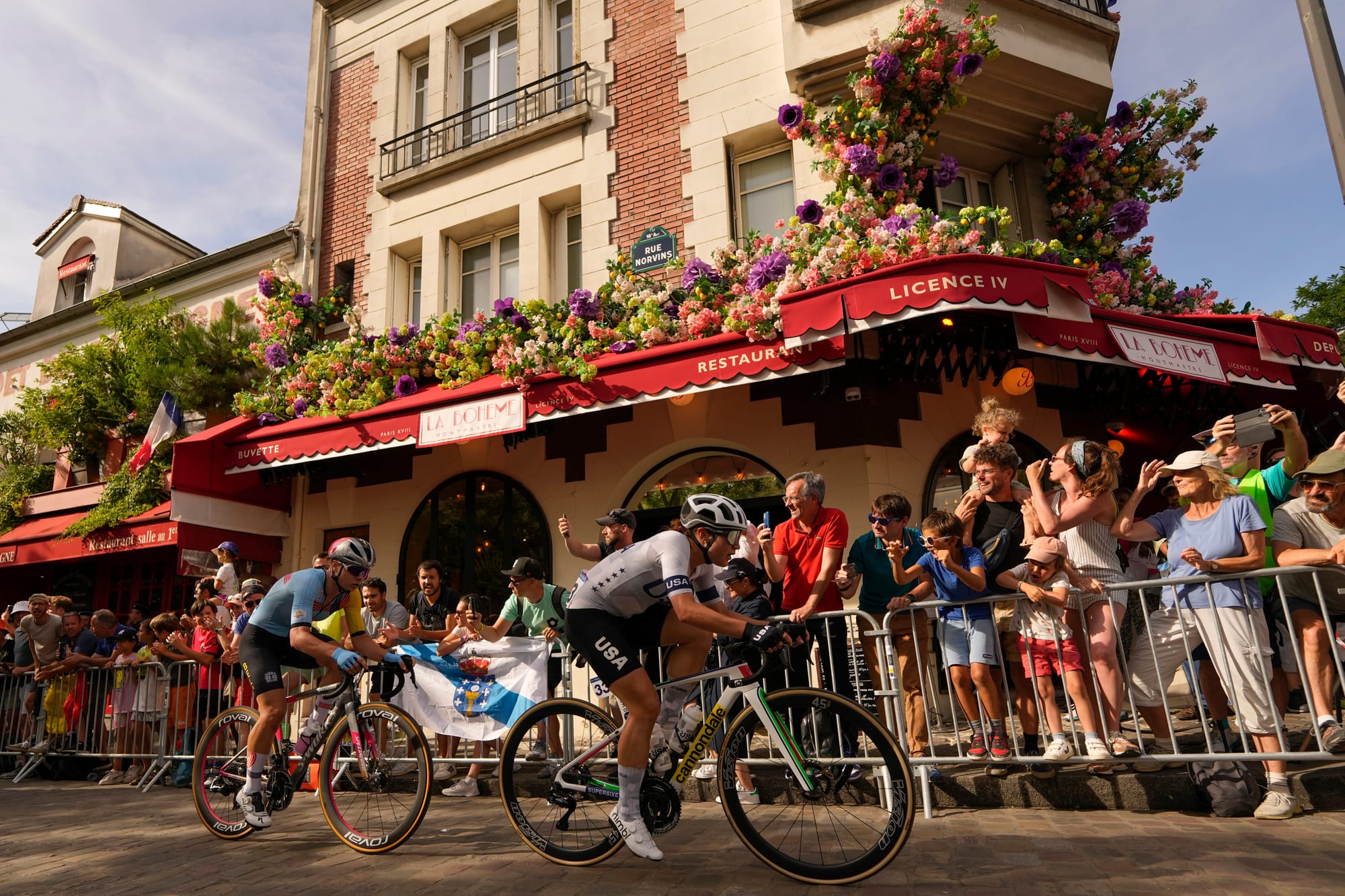
“I enjoyed watching this pinnacle of human performance, this pinnacle of athletics. This is as good as it gets,” Faulkner, 31, says today. “They are breaking barriers of what we believe is humanly possible with our bodies; they are testing the limits of what any human can do. And I found I was really curious about that. How fast can a human go? What’s possible?”
Turns out, the young Faulkner was fast, too. She won an Alaska state swimming championship when she was 10. (It’s a small state, so not much of a bragging right,” she deflects.)
Faulkner is a native Alaskan, growing up in Homer, a small fishing city on the Kenai Peninsula known as the “Halibut Capital of the World.” When she wasn’t in the pool, she was hiking through the woods, fishing in lakes or the ocean, or making homemade jam with her four siblings. She also pitched in with the family’s hotel and restaurant, Land’s End, and jokes she did so well in school because “I didn’t want to spend the rest of my life cleaning toilets and checking in guests.”
At 14, she moved to Massachusetts to attend Phillips Academy, a private boarding school with alumni such as former presidents George H.W. Bush and George W. Bush, actor Humphrey Bogart, and former New England Patriots head coach Bill Belichick. Though she was thousands of miles from the Alaskan woods, Faulkner found solace in sports. The school required athletes to change sports every semester, so she ran cross country in the fall, swam in the winter, and rowed in the spring.
She later joined the Harvard University rowing team, where she spent her mornings practicing in the Charles River and afternoons in class, earning a computer science degree. Mental strength is one of the most important lessons Faulkner learned at Harvard. While her friends went out at night, she studied or went to bed early so she was rested for early morning workouts.
“The idea of waking up early to train was normal to me. It didn’t seem hard,” she says. “And somewhere from a really young age I built my physical aerobic engine that really helped me in biking, but it also gave me the mental grit and resilience that you need to race, to keep going when it gets really hard.”
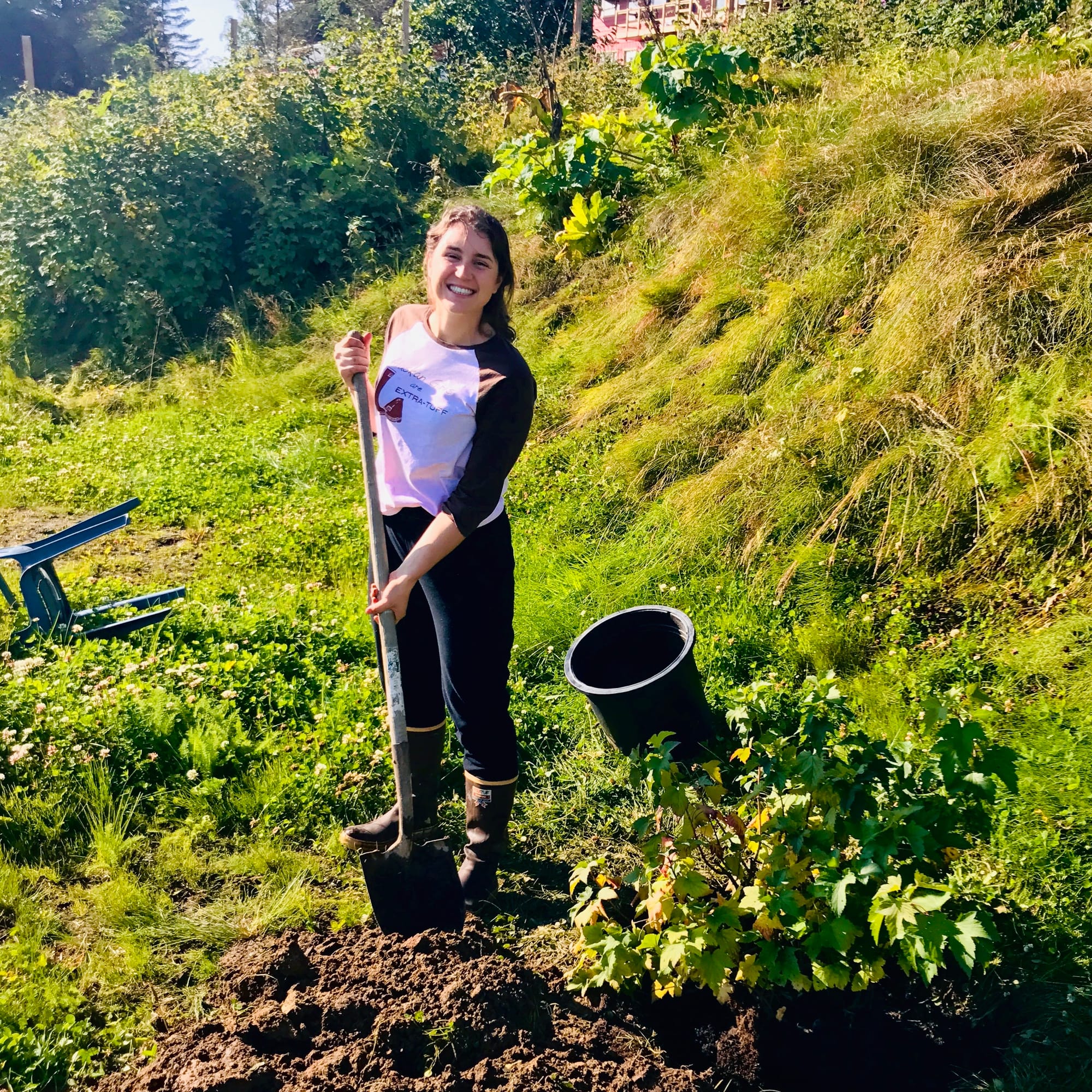
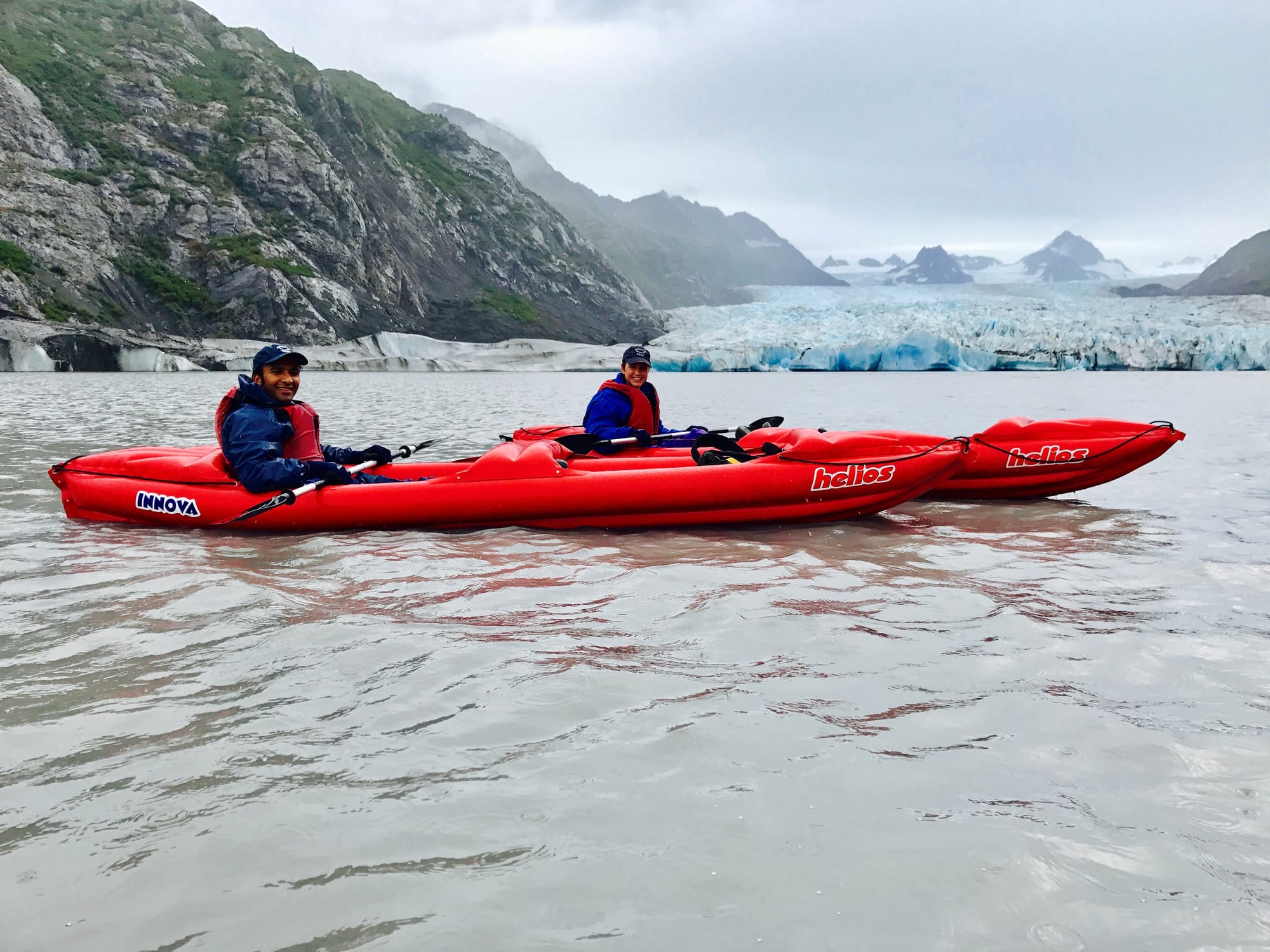
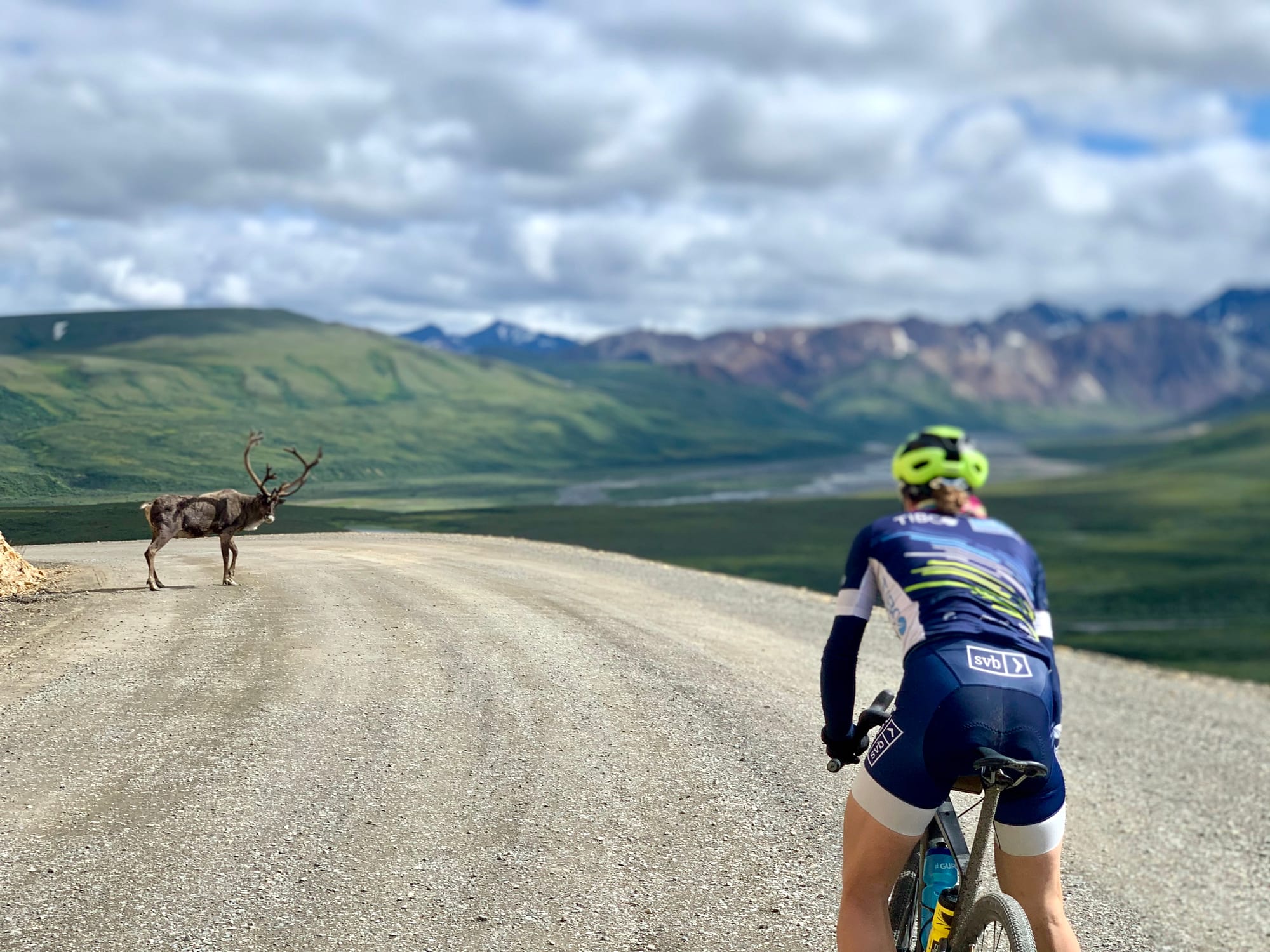
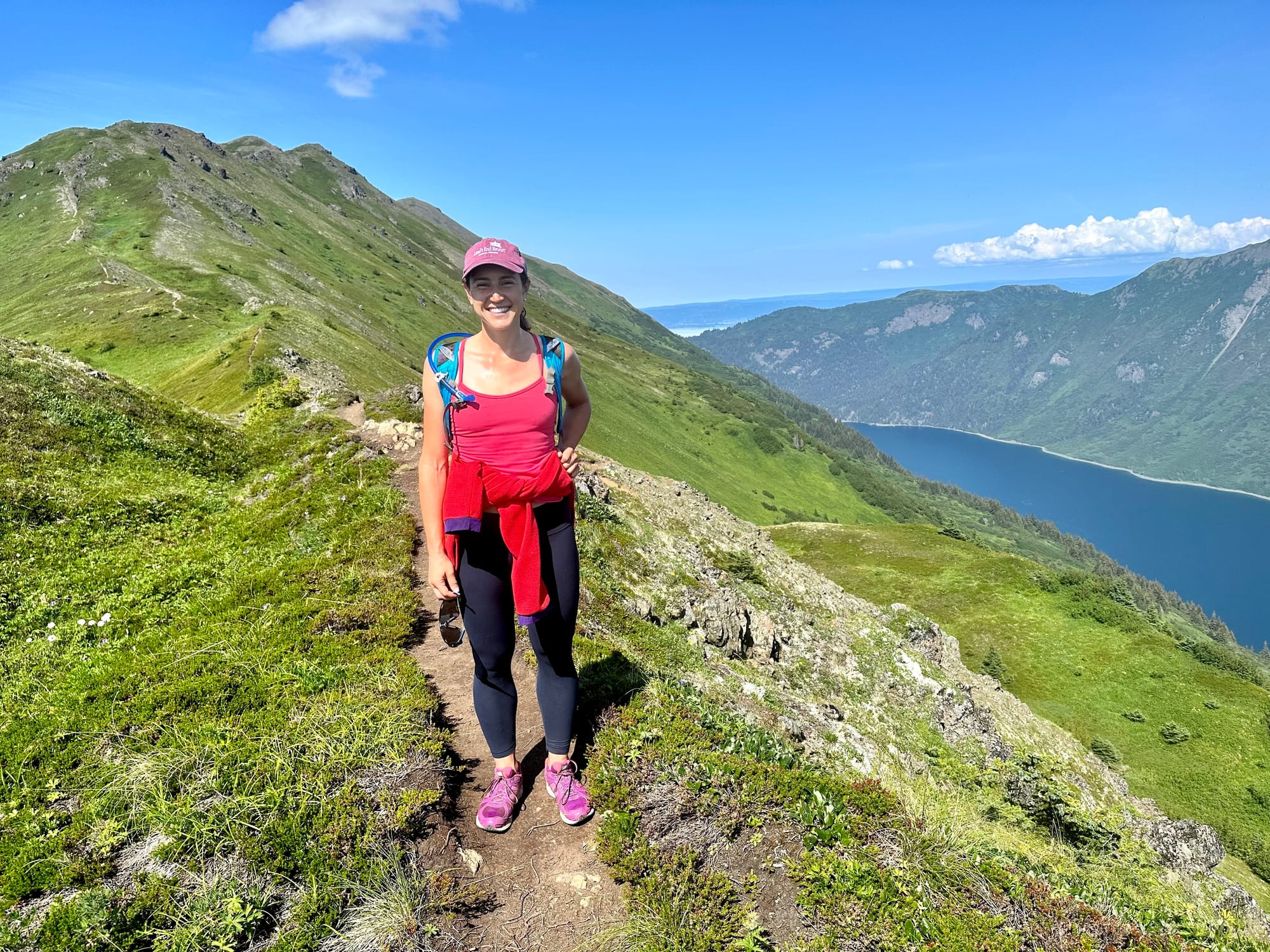
From Alaska to Harvard University to the Paris Olympics, Kristen Faulkner's journey has traversed the globe. [Courtesy photos]
Biking wouldn’t come until later. After college, she accepted a job as a venture capitalist in Manhattan identifying new investments and analyzing potential investments. She was great at her job and loved having a career that paid well and had a lot of room for growth. But even so, something felt missing. Maybe it was living in the concrete jungle that is the Big Apple. Maybe she needed to get back to nature.
Faulkner joined a free introductory cycling class in Central Park in 2017. She showed up with a pair of clip-in shoes that didn’t clip into her friend’s bike. Turns out not every shoe and pedal are compatible. But with every turn around the cones, Faulkner fell in love.
Soon, she was biking daily. She hired a coach. She bought a bike and even the right shoes to match. She was skipping Friday nights with friends for early morning training rides. She saved her money to travel to races.
Cycling became as important as her job. Riding gave her clarity needed to succeed in the cutthroat world that is investing. After moving to San Francisco, she continued mentoring female entrepreneurs who were willing to risk everything to chase their dreams. Was it time for her to make a similar leap?
Faulkner had won a handful of local races after moving to California and even began competing with a professional team. She rode her indoor bike between meetings while reading investment memos so she didn’t fall behind. She logged miles during lunch breaks. Once she suffered a flat tire miles from home with an important video meeting looming.
While she loved her job, there was a fact Faulkner couldn’t ignore: now in her late-20s, she was riding in a very narrow window where she could pursue cycling full time in hopes of winning at the highest levels. Plus, it’s not like venture capital was going anywhere.
On Feb. 1, 2021, Faulkner began her career as a professional cyclist.
“I promised myself a year. If I’m broke at the end of the year and have no results, I can just go find another job,” she says. “But I owe it to myself to try this for a year.”
While Cinderella stories focus on magical endings — the 1% of the journey, as Faulkner calls it — they fail to capture the 99% of the story. They don’t show the 4 a.m. rides in the pouring rain when there are no cameras or spectators cheering her on. Those moments when she’s alone in her apartment, creating flashcards of her opponents, highlighting their strengths and weaknesses for any advantage that could help her win. They don’t capture the training sessions in the gym when her legs are screaming so loudly to stop, but just one…more…rep…
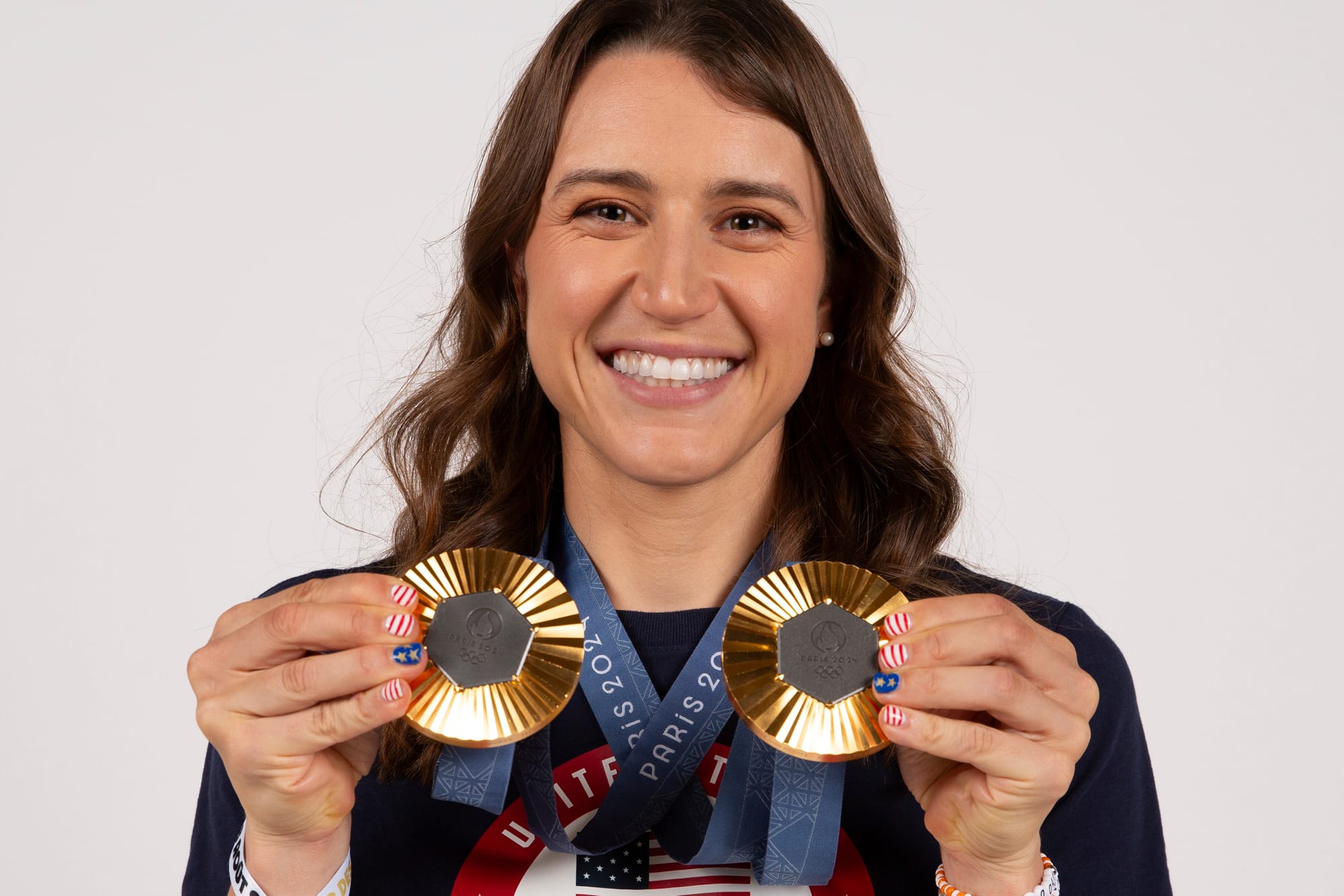
When Faulkner quit her job, she was met with a lot of confusion and criticism from her family and friends. “No one really understood professional cycling,” she says. “No one outside of my cycling friends knew what I was really trying to do.”
Now imagine their surprise when Faulkner, then 28, revealed she was moving to Europe to compete, to prove she could succeed. “I felt like a lot of them were like, ‘Kristen’s quitting her job to go be a bum and bike around Europe,’” she says.
She arrived in Girona, in northeastern Spain, severely jet lagged with two heavy bike bags and a suitcase, staring down four flights of cobblestone steps to her rental home. She burst into tears. She now lived on the other side of the world where she didn’t speak the language, had little understanding of the culture, with no friends or family to help her adapt. What was she doing with her life? Paving her own path, giving the sport her all.

Unlike America, professional cycling races are held nearly every week in Europe, sometimes with only five days in between, so it made practical — and financial — sense to relocate, if even for a year.
Success came quickly in Europe. She paired a couple of top-10 finishes with a stage win at the Ladies Tour of Norway — and treated herself to dinner at a Michelin-star restaurant near her flat.
Faulkner’s rise paralleled an interest in women’s sports, sparking more interest and sponsorships and money for the athletes. Her family and friends back home could watch her races, and suddenly her trip to Europe wasn’t such a foreign concept. There was Faulkner on their TVs or computer screens biking solo up a mountain or racing around a velodrome with her team.
Faulkner says the added attention to women’s cycling has brought in more competition, which will only benefit the sport. “If you were the same rider you were five years ago,” she says, “you wouldn’t be competitive today.”
She’s adapted by improving her bike-handling skills, honing her power profile, and developing her race intuition when deciding to attack — all skills that would lead to Olympic gold.
Before the Olympic road race, there were people trying to talk Faulkner out of competing in the race. You’re not going to medal, they told her. You haven’t had time to prepare. Faulkner had already qualified for the Team USA women’s team pursuit, an indoor track race, and the argument was that the road race would affect her performance. Faulkner, though, has learned to trust her intuition, which told her: Go for it.
“I think in all the situations where I trusted my gut, it’s worked out,” she says. “And all the times where I didn’t trust my gut or I doubted myself, where I paid too much attention to what other people thought, I missed out on big opportunities.”
Faulkner met with her coaches to develop her path to gold in the road race. In her eyes, the strategy was simple.
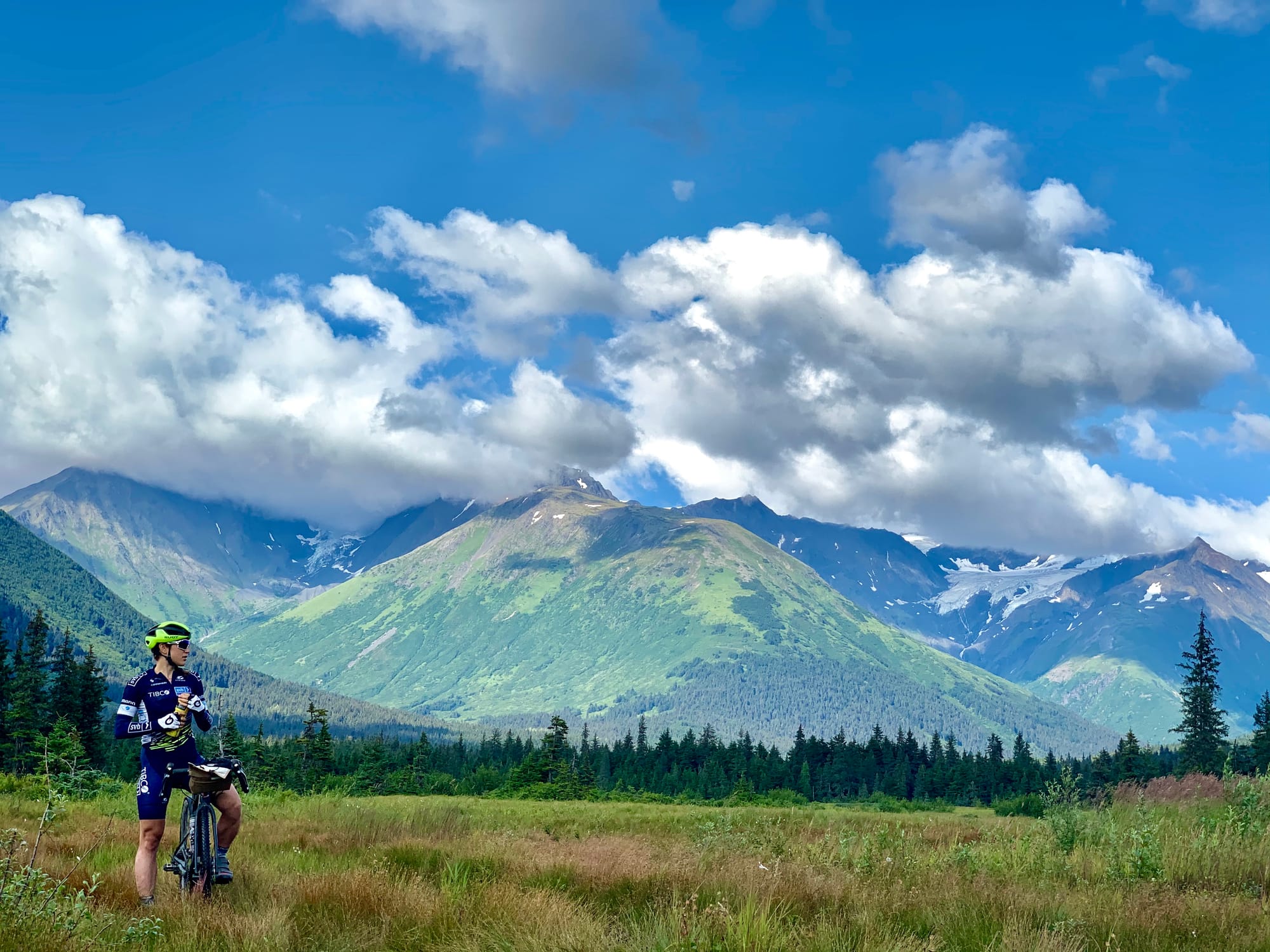
“I went through and studied the course. I studied every rider. The way I win is by shrinking the field to a small bunch and attacking at the finish,” she told her coaches. “That’s how I’m gonna win.”
Sure enough, Faulkner paced herself at the front of the race early, missing a crash halfway through that splintered the field, and attacked in the final two miles, leaving the world’s best riders stunned as she cruised to victory, nearly a minute ahead of second place.
Faulkner is the first American woman since Connie Carpenter-Phinney in 1984 to win the road race. Two days later, she helped the women’s track cycling team win gold in team pursuit, a first in Team USA history.
By the end of the Olympics, Faulkner had cemented her own legacy as a two-time Olympic gold medalist and becoming the first American woman to win gold in two separate disciplines at the same Olympics.
Truth is, reality is still sinking in. The golds. The praise. The response from people worldwide who are sharing how her story has inspired them to pick up a bike or to rethink their own careers.
Faulkner’s journey is one of dedication and resiliency, a tale of sacrifice and courage, of big dreams and trusting oneself. Just don’t call it a Cinderella story.